Study Telecommunications Engineering at Top Universities in Malaysia Accredited by Board of Engineers Malaysia (BEM)
Telecommunications engineering combines electrical engineering with computer science to

- A specialty within electrical engineering and closely linked to broadcast engineering, telecommunications engineering involves the design of specialized computer and electronics equipment for use in a telecommunications network or infrastructure. These include cellular telephone networks, broadband systems and other cutting-edge technologies.
enhance telecommunication systems. The work of a telecommunications engineer ranges from basic circuit design to strategic mass developments.
A telecommunication engineer is responsible for designing and overseeing the installation of telecommunications equipment and facilities, such as complex electronic switching systems, copper wire telephone facilities, and fiber optics.
Telecommunication is a diverse field of engineering which is connected to electronics, civil, structural, and electrical engineering. They are responsible for providing the method for customers to have telephone and high-speed Internet data services.
Telecom engineers are often expected, as most engineers are, to provide the best solution possible for the lowest cost to the company. This often leads to creative solutions to problems that often would have been designed differently without the budget constraints dictated by modern society.
In the earlier days of the telecom industry, massive amounts of cable were placed that were never used or have been replaced by modern technology such as fiber optic cable and digital multiplexingtechniques.
Students who are good in subjects like Add Maths and Physics can consider the degree in Telecommunications Engineering.
Students can consider studying Communications Engineering at Asia Pacific University or UCSI University which are
recognised by the Malaysian Ministry of Education. Their courses are accredited by MQA and the Board of Engineers Malaysia (BEM).
Both universities are very established in offering engineering programmes in Malaysia and have more than 20 years of experience and are the best universities in this field of study.
Students wanting to have a good future in their career should choose the best university to study at so that they can gain the necessary skills and knowledge.
B. Eng (Hons) Telecommunications Engineering at Asia Pacific University
The Telecommunications Engineering programme at APU is specifically designed to provide:
- High-quality undergraduate engineering education by providing students with a curriculum that is firmly grounded in telecommunication engineering fundamentals.
- A study in the areas of telecommunication engineering which covers the structure of mobile computing systems, telecommunication systems & networks, and software systems.
- The technical skills to cover the ever demanding expertise in the fields of microwave and optical Transmission, satellite communications and RF communications.
PROGRAMME EDUCATIONAL OBJECTIVES
Telecommunication Engineers design, develop, test and maintain telecommunication systems. Telecommunication engineering
will appeal to those who are interested in the following field:
- Satellite and mobile communication
- Signal processing
- Optical fibres and photonics
- Data networks, data coding, compression, encryption and transmission
- Real-time embedded systems
- Telecommunication Engineers design, develop, test and maintain telecommunication systems
PROGRAMME OUTCOMES
The students, upon completion of their study, should attain the following outcomes:
- Ability to gain and apply basic principles of Mathematics, Science and Engineering.
- Ability to identify engineering problems and apply basic engineering principles to solve them.
- Ability to recognize and apply suitable tools and techniques for engineering practical applications.
- Ability to investigate complex engineering problems using research techniques.
- Ability to design solutions for complex engineering problems.
- Ability to communicate effectively and professionally.
- Ability to comprehend and demonstrate current good practices of engineering for sustainable development.
- Ability to practice safety, health, social, cultural, legal and environmental responsibilities as an engineer.
- Ability to execute the responsibilities of an Engineer professionally and ethically.
- Ability to function effectively as an individual or in a team.
- Ability to recognize the need for, and be able to engage in independent and life-long learning.
- Ability to demonstrate and apply the knowledge and understanding of engineering management principles.
Year 1 Subjects for the Telecommunications Engineering degree at Asia Pacific University (APU)
These modules provide an appropriate platform for an Engineering Professional to understand the basic principles of
engineering in the areas of Circuit Analysis, Engineering Materials, and Engineering Design.
In addition, a thorough grounding in principles of IT and management are provided by the Programming and Management modules. Modules such as Engineering Mathematics and Introduction to Management provide the basic academic skills required to meet the demands of employers. Important and relevant skills for managing activities and for your own independent learning are also introduced.
Common Modules
- Analysis of Circuits
- Engineering Materials
- Introduction to Management
- Engineering Mathematics 1
- Introduction to C Programming
- Engineering Mathematics 2
- Instrumentation & Measurement
- Engineering Design
Year 2 Subjects for the Telecommunications Engineering degree at Asia Pacific University (APU)
Here, you start specialising in modules that develop the necessary underlying knowledge and skills in Telecommunication
Engineering. Further, in-depth Electronic and Telecommunication skills are developed here with modules such as Electromagnetic Field Theory, Engineering Software & Applications, Analogue Electronics, Digital Electronics, Analogue Communication, Digital Communication, Signals & Linear Systems and Introduction to Power Systems. Engineering Mathematics is provided for the better understanding of the engineering modules.
Common Modules
- Analogue Electronics
- Engineering Mathematics 3
- Electromagnetic Field Theory
- Digital Electronics
- Engineering Software & Applications
- Signals & Linear Systems
- Introduction to Power Systems
Specialised Modules
- Analogue Communication
- Digital Communication
Year 3 Subjects for the Telecommunications Engineering degree at Asia Pacific University (APU)
Specialised knowledge and skills in the areas of, Control Engineering, Multimedia Applications, Computer Architecture,
Microprocessor Systems & Embedded Software, Digital SignalProcessing, Numerical Methods & Statistics, Antenna & Propagation, Modern Communication Systems, and Optical Communication & Networks are a critical focus of this level. There is further development of the ability to apply relevant engineering skills with strong critical thinking and analysis.
Independent learning continues in all modules.
Common Modules
- Control Engineering
- Multimedia Applications
- Computer Architecture
- Microprocessor Systems & Embedded Software
- Numerical Methods & Statistics
- Digital Signal Processing
Specialised Modules
- Antenna & Propagation
- Modern Communication System
- Optical Communication & Networks
Engineering Internship at Asia Pacific University
Industry placement with a suitable organisation for a minimum period of 12 weeks, after completing Year 3 and before the commencement of Year 4.
Industry placement with a suitable organisation for a minimum period of 12 weeks, after completing Year 3 and before the commencement of Year 4.
Year 4 Subjects for the Telecommunications Engineering degree at Asia Pacific University (APU)
The final year Engineering modules provide the necessary industry application technological skills which will become very
useful for employment upon graduation. These modules include, VLSI Design, Analogue Integrated Circuits & Systems, Microwave & RF Communication and Satellite & Mobile Communication.
Your personal and professional development is enhanced by the module in Engineer in Society and Engineering Project Management. You will enhance your technical capability and understand how to innovate, generate and manage the creation of new ideas.
The Project Phase I (Investigation) in Telecommunication Engineering will enable students to take on R&D with commercialisation. The Telecommunication Engineering Project Phase II (Implementation) also develops the academic and practical aspects of your chosen areas of study and reinforces your independent learning skills.
This is where you will demonstrate higher level critical thinking, analysis and solutions development skills which will enhance your employability.
Common Modules
- Engineering Project Management
- Project Phase I (Investigation)
- VLSI Design
- Analogue Integrated Circuits & Systems
- Project Phase II (Implementation)
- Engineer in Society
Specialised Modules
- Microwave and RF Communication
- Satellite and Mobile Communication
Accreditation of the Telecommunications Engineering degree at Asia Pacific University (APU) by Board of Engineers Malaysia (BEM)
Asia Pacific University Engineering Degrees are fully accredited by the Board of Engineers Malaysia (BEM) which is a signatory
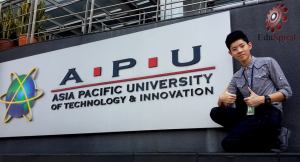
- After I finished my SPM, I felt confused about my further study. Because of Eduspiral, I am able to pursue my studies at Asia Pacific University. Eduspiral, was so patient to answer all my questions and even brought me to visit the university when I went to KL alone. Jeremy Lee, APU scholarship student
to the Washington Accord.
This accreditation ensures that APU Engineering Graduates will have the following benefits in countries who are signatories of the Washington Accord:
Opportunities to register as a Graduate Engineer with Board of Engineers Malaysia (BEM) or the relevant professional bodies in other countries who are signatories under the Washington Accord.
Pathways to becoming a Professional or Chartered Engineer.
Assurance that graduates are considered as having met international academic standards for engineering practice.
International Recognition
International Recognition
APU Engineering Degrees are Accredited Professionally by the Board of Engineers Malaysia (BEM) and are therefore recognized
internationally under the Washington Accord. Recognition under the Washington Accord allows for Asia Pacific University engineering programmes to be recognized by countries such as Australia, Canada, Taiwan, Hong Kong, Ireland, Japan, South Korea, Malaysia, New Zealand, Singapore, South Africa, Turkey, Russia, the United Kingdom and the United States who are all signatories of the accord.
This allows APU graduates to be recognised in these countries for career opportunities towards achieving Professional/Chartered Engineer status or for further education progression.
Furthermore, many countries which are not yet signatories to the Washington Accord also use this as a benchmark in recognizing Engineering Degrees.
With this achievement, recognition under the Washington Accord enables APU Engineering graduates to work in any country in the world who are also a signatory to the Accord, without the need to re-qualify.
If they choose to work in Malaysia, APU graduates will have the opportunity to register as Graduate Engineers with Board of Engineers Malaysia (BEM), if they choose to work overseas in Washington Accord signatory countries; they can also register as
Graduate Engineers.
The recognition is of utmost importance to the engineering education in Malaysia as graduates from accredited engineering degree programmes from Washington Accord signatory countries are considered as meeting the academic standard for practices in engineering at the international level.
This recognition ensures the employability of the APU graduates and makes Asia Pacific University one of the best universities in Malaysia to study Telecommunication Engineering.
Strategic location of Asia Pacific University campus
Asia Pacific University is strategically located at Technology Park Malaysia near the Bukit Jalil LRT. The university is currently building its new campus also located in Technology Park Malaysia. Hostel Accommodation is provided off-campus with a free bus shuttle to and from the campus including the Bukit Jalil LRT. Asia Pacific University also offers scholarships to deserving students.
Communication & Electronic Engineering at UCSI University
Communication Engineering is the branch of engineering that deals with communications technology development and operations, including telecommunications and computer networks, to name a few.
Modern society has become increasingly dependent on instantaneous communication of information in a world of integrated
Modern society has become increasingly dependent on instantaneous communication of information in a world of integrated
digital communication networks. Thus, this degree programme caters to society’s demands for seamless transfer of information, through mobile phones, TVs, radios, the Internet or other media.
Communication has been identified as one of the major growth areas in the industry. Students will learn about operating principals and designing devices, ranging from mobile phones to wireless networks and satellite communication systems, among others.
Communication has been identified as one of the major growth areas in the industry. Students will learn about operating principals and designing devices, ranging from mobile phones to wireless networks and satellite communication systems, among others.
Notably, the programme covers a wide range of courses, from electrical science and circuit design to computing, optical fibre systems, microwave circuits, communications and digital networks.
To nurture competitiveness among graduates, they are also required to undergo industrial training under UCSI University’s Co-operative Training Placement Scheme at the end of the 2nd and 3rd academic years. This training allows students to learn and familiarise themselves with the real-life working environment. Apart from that, students also undertake a research and development project in their final year of study.
To nurture competitiveness among graduates, they are also required to undergo industrial training under UCSI University’s Co-operative Training Placement Scheme at the end of the 2nd and 3rd academic years. This training allows students to learn and familiarise themselves with the real-life working environment. Apart from that, students also undertake a research and development project in their final year of study.
UCSI University is one of the best universities for telecommunication engineering in Malaysia because they were one of the first private universities to offer this course. The quality of the programme has gained recognition through accreditation by the Board of Engineers Malaysia (BEM)
Programme Details
The duration of the programme is 4 years.
Programme Details
The duration of the programme is 4 years.
In each year there are two long-semesters consisting of 14 weeks of instruction with 2 weeks of examinations, and one short-semester consisting of 7 weeks of instruction with 1 week of examinations. The long-semesters start in January and May, while the short-semester starts in September.
In the months of November & December students undergo industrial training under the Co-Operative Placement Scheme to learn and to familiarize themselves with real life working environment. In addition, students also undertake a research and development project in their final year.
The number of contact hours per courses per week depends on the credit and teaching methodology of each course. Each credit is approximately equivalent to 1 hour of class, or 2 hours of labs per week.
In the months of November & December students undergo industrial training under the Co-Operative Placement Scheme to learn and to familiarize themselves with real life working environment. In addition, students also undertake a research and development project in their final year.
The number of contact hours per courses per week depends on the credit and teaching methodology of each course. Each credit is approximately equivalent to 1 hour of class, or 2 hours of labs per week.
Facilities at UCSI University
Situated on a sprawling 19-acre, the Campus is strategically located in Cheras, Kuala Lumpur offers a fully wireless, cutting-edge access to the world of e-learning and e-resources. This purpose-built Campus can accommodate up to 15,000 students. On-campus and off-campus hostel accommodation is provided.
Engineering Laboratories
Situated on a sprawling 19-acre, the Campus is strategically located in Cheras, Kuala Lumpur offers a fully wireless, cutting-edge access to the world of e-learning and e-resources. This purpose-built Campus can accommodate up to 15,000 students. On-campus and off-campus hostel accommodation is provided.
Engineering Laboratories
- Chemical Instrumentation Lab
- Communication Labs 1 & 2
- Control & Instrumentation Lab
- Drafting & Design Lab
- Electrical & Electronics Labs 1 & 2
- NI Virtual Lab
- Mechanical Workshop & Lab
- Mechatronics Lab
- Microprocessor & Microcontroller Lab
- PCB Fabrication & Mechanical Workshop
- Petrochemical Lab
- Pneumatics & Hydraulics Lab and Robotics Lab
- Power & Machines Lab
- R & D Lab
- Badminton Courts
- Basketball Courts
- Football Field
- Futsal Court
- Gymnasium
- Pool Tables
- Squash Courts
- Swimming Pool
- Table Tennis
- Volleyball Court
BEng (Hons) Communication & Electronic Engineering Degree Subjects Offered at UCSI University
Year 1 Communication & Electronic Engineering Degree Subjects Offered at UCSI University
- Calculus & Analytical Geometry II
- Circuit Theory I *
- Digital Electronics I *
- Analogue Electronic I *
- Mathematical Methods for Engineers I
- Technical Communication
- Electromagnetic Theory I *
- Electronic Labratory 1A
- Electronic Labratory 1B
Year 2 Communication & Electronic Engineering Degree Subjects Offered at UCSI University
- Advanced Circuit Theory &TL *
- Engineering Design *
- Mathematical Methods for Engineers II
- Electronic Manufacturing Industry *
- Engineering Softwares & Applications *
- Electrical Power *
- Computing for Engineers *
- Co-operative Placement 2
- Analogue Electronics II *
- Digital Electronics II *
- Electronic Labratory 2A
- Electronic Labratory 2B
Year 3 Communication & Electronic Engineering Degree Subjects Offered at UCSI University
- Communication Circuits *
- Electromagnetic Theory II
- Communication Theory *
- Numerical Analysis
- Data Communication &Networks *
- Microprocessor Systems *
- Environmental Engineering and Abatement Processes"
- Optical Communication *
- Engineering & Management & Economics
- Engineers in Society
- Electronic Laboratory 3A
- Communication Laboratory 3B
Year 4 Communication & Electronic Engineering Degree Subjects Offered at UCSI University
- Communication Systems *
- Communication Sub-System Design
- Microwave System Design
- Antennas & EMC
- Digital Signal processing *
- Digital Systems & HDLs *
- Final Year Project A
- Embedded Systems Design *
- Final Year Project B
- Co-operative Placement 4
- Elecronic Laboratory 4A
- Communication Laboratory 4B
Elective :
- Electronic Circuit Design e*
- Introduction to Production and manufacturing
- VLSI Design
- Technopreneurship
Careers in Telecommunication Engineering in Malaysia
Telecommunication Engineering is the most rapidly developing and dynamic field of Engineering. Rapid growth in
the telecommunication sector is evident from the deep penetration of the Internet and mobile phones in every corner of the world.
Careers include design engineers of telecommunication and signal processing systems that provide essential electronic support networks for information technology industries and mobile/wireless and communication engineers.
Graduates would also be employable in sectors such as broadcasting and general telecommunication services.
Graduates are able to find career opportunities in the following roles:
- RF Design
- Electronic Design
- Device and System Design
- R & D Engineer
- Fabrication & Data Transmission
- Project Engineer
- Micro Design
- COmmunication Design
- Manufacturing
- Power Plant Transmission
- Antennae Design
EduSpiral Consultant Services- Your Personal Online Education Advisor
Established since 2009, EduSpiral Consultant Services helps provide information and counselling on courses and universities in Malaysia. EduSpiral Consultant Services also represents Northampton University, UK, MDIS Singapore and Hong Kong Polytechnic University.
EduSpiral Consultant Services represents the best colleges and universities in Malaysia offering a wide range of choices for students to choose from. These colleges and universities offer value for money in the quality of education and excellent facilities that you get.
These universities and colleges are chosen by EduSpiral because they represent the best in their fields in Malaysia and affordable. EduSpiral provides in-depth information and counseling on their courses so that students are able to make the right choice.
If you are still not sure what to study, please contact us and we will send you a free EduSpiral Career Assessment Form.
Please contact us for more details.
- Whatsapp: +601111408838
- Wechat/Line: EduSpiral88
- Instagram: www.instagram.com/eduspiral
- Foursquare: www.foursquare.com/eduspiral
- Youtube: www.youtube.com/eduspiral
- Follow EduSpiral: www.twitter.com/eduspiral
- Be my friend: www.facebook.com/eduspiral1
- Like EduSpiral: www.facebook.com/eduspiralcs
- Message me: info@eduspiral.com
- Website: www.eduspiral.com
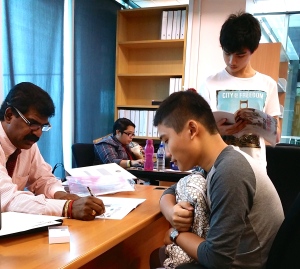


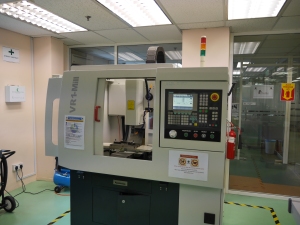
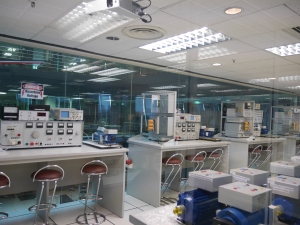
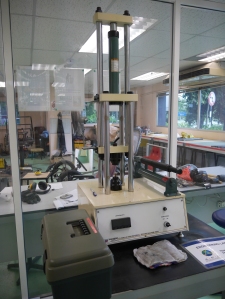
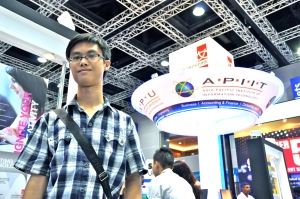
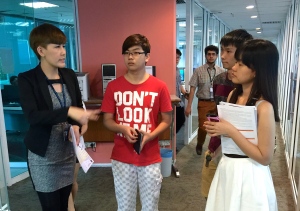
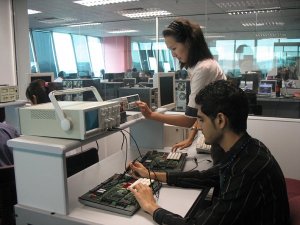
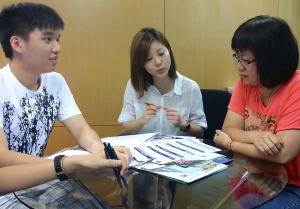
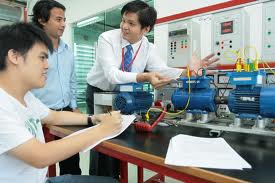

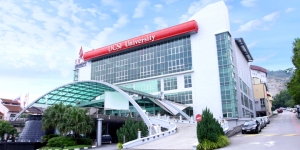

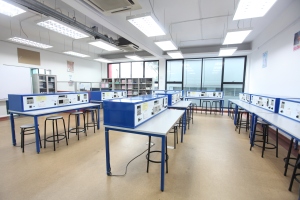

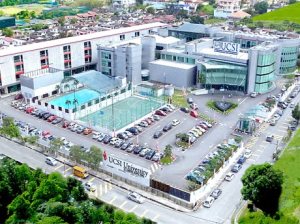
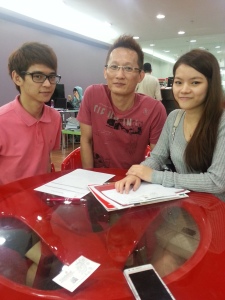

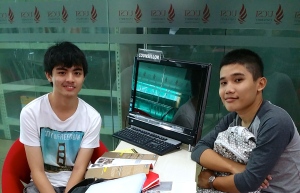
No comments:
Post a Comment
Please leave your comments and questions